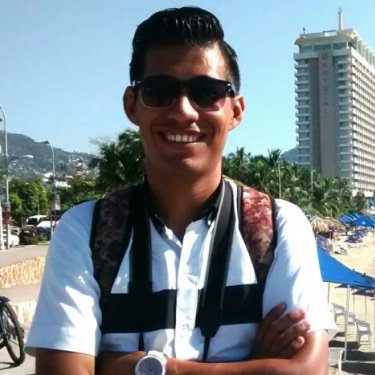Threatened Mexican journalist not allowed to enter United States

Reporters Without Borders (RSF), the National Press Club, and the Newseum Institute condemn United States Customs and Border Protection (CBP)’s decision to deny Mexican journalist Martin Mendez entry into the US for several high-level meetings in Washington, DC this week. The undersigned view this decision as an attempt to silence Mendez and prevent him from telling his story to the American people.
Despite presenting a detailed list of high-level meetings and events that Mexican journalist Martin Mendez Pineda was scheduled to attend this week in Washington, DC, United States Customs and Border Protection (CBP) denied Mendez’ request to enter the country on Sunday, September 10.
“I am angry and disappointed that I was not able to attend the events with everyone in Washington D.C. this week,” Mendez told RSF. “I was very much looking forward to sharing my experiences as a journalist in Mexico and as someone whose threat to safety has been ignored by the United States Immigration officials. I lost the only job I was able to find in Mexico, while remaining in hiding, in order to have the opportunity to attend these events, which would’ve allowed me to discuss the dangers journalists face throughout the world and which I currently face in Mexico right now.”
Mendez, a former reporter for Novedades Acapulco in Guerrero, Mexico, where he received threats after writing a story about local police violence, had attempted to seek asylum in the US in the spring of 2017 without success. He filed a legal application at the US border on February 5, but was immediately taken into detention by Immigration and Customs Enforcement (ICE). Despite passing his credible fear interview on March 1, he was twice denied a request for parole pending his asylum determination and remained in detention at various ICE facilities for more than three months. Due to the deplorable conditions of his detention and concerns for his health, Mendez ultimately decided to withdraw his asylum request and return to Mexico, though he remains in hiding to this day.
RSF had been working with the Newseum Institute and Digital Content Next to include Mendez in a Wednesday panel discussion covering what it’s like for reporters to do their job in an increasingly threatening environment. RSF had also worked with Carlos Spector, an immigration attorney in El Paso, on requesting entry for Mendez into the country for the Newseum event, several other high profile meetings with the US Congress, the US Department of State, as well as a panel discussion on Mexico’s dangers for journalists at the National Press Club Monday night.
“We are saddened and quite frankly upset that Martin was not able to be with us in person for the meetings and events we had arranged for him this week,” said Margaux Ewen, Advocacy and Communications Director for RSF’s North America bureau. “Martin’s story is a harrowing one, and he most certainly deserved to tell it in person to those who could potentially offer a solution. The American people also deserve to know what has happened to him for shedding light on police violence and corruption in Mexico. Just across the US’ southern border lies one of the deadliest countries for journalists in the world, and what happens there should interest America as much as anything that’s happening at home.”
"The case of Martin Mendez illustrates how far the United States has fallen from its once-high post as a beacon of press freedom," said Jeffrey Ballou, President of the National Press Club. This reporter did everything by the book -- obtaining a US attorney, entering the country legally and applying for asylum as he did so. Despite that, and despite the fact that US immigration authorities found he had a "credible fear" of returning to Mexico, he has been treated as a criminal by the country that should have sheltered him. Refusing to allow him to speak about his case at the National Press Club is the latest insult -- not only to Martin, but to all working journalists. It also suggests immigration authorities are embarrassed to have this discussed. They should be."
“Threats to journalists worldwide, and particularly today in Mexico, need to be disclosed, documented and discussed in democratic societies,” said Gene Policinski, chief operating officer of the Newseum Institute. “Refusing entry to the U.S. for a limited number of days to reporter Martin Mendez – who faces death threats in Mexico – to participate in a program at the Newseum on the dangers to journalists worldwide is counter-productive to alerting the public to those dangers, and sends the wrong message to those repressive and criminal forces who would harass, threaten, injure or kill those journalists who bravely speak truth to power.”
Mexico is the western hemisphere’s most dangerous country for journalists. More than 100 journalists have been killed in Mexico since 2000, and 20 have disappeared. So far in 2017, at least 8 journalists have been murdered in connection with their work. Due to a climate of impunity in the country, RSF has only been able to confirm 4 of those killed were in direct relation to their work as journalists.
Mexico is ranked 147th out of 180 countries in RSF’s 2017 World Press Freedom Index. The United States is ranked 43rd.



